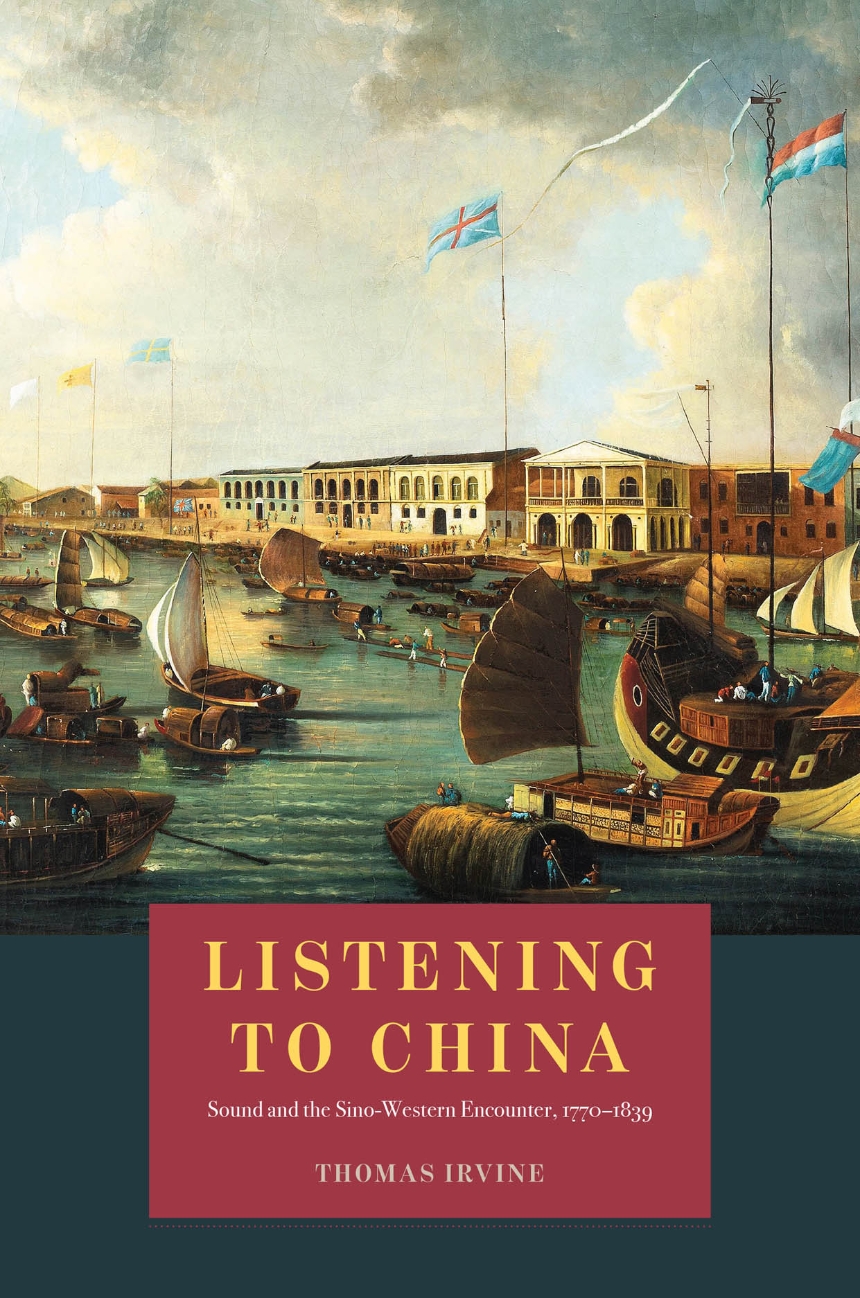Listening to China
Sound and the Sino-Western Encounter, 1770-1839
From bell ringing to fireworks, gongs to cannon salutes, a dazzling variety of sounds and soundscapes marked the China encountered by the West around 1800. These sounds were gathered by diplomats, trade officials, missionaries, and other travelers and transmitted back to Europe, where they were reconstructed in the imaginations of writers, philosophers, and music historians such as Jean-Philippe Rameau, Johann Nikolaus Forkel, and Charles Burney. Thomas Irvine gathers these stories in Listening to China, exploring how the sonic encounter with China shaped perceptions of Europe’s own musical development.
Through these stories, Irvine not only investigates how the Sino-Western encounter sounded, but also traces the West’s shifting response to China. As the trading relationships between China and the West broke down, travelers and music theorists abandoned the vision of shared musical approaches, focusing instead on China’s noisiness and sonic disorder and finding less to like in its music. At the same time, Irvine reconsiders the idea of a specifically Western music history, revealing that it was comparison with China, the great “other,” that helped this idea emerge. Ultimately, Irvine draws attention to the ways Western ears were implicated in the colonial and imperial project in China, as well as to China’s importance to the construction of musical knowledge during and after the European Enlightenment. Timely and original, Listening to China is a must-read for music scholars and historians of China alike.
Through these stories, Irvine not only investigates how the Sino-Western encounter sounded, but also traces the West’s shifting response to China. As the trading relationships between China and the West broke down, travelers and music theorists abandoned the vision of shared musical approaches, focusing instead on China’s noisiness and sonic disorder and finding less to like in its music. At the same time, Irvine reconsiders the idea of a specifically Western music history, revealing that it was comparison with China, the great “other,” that helped this idea emerge. Ultimately, Irvine draws attention to the ways Western ears were implicated in the colonial and imperial project in China, as well as to China’s importance to the construction of musical knowledge during and after the European Enlightenment. Timely and original, Listening to China is a must-read for music scholars and historians of China alike.
256 pages | 14 halftones, 4 line drawings | 6 x 9 | © 2020
New Material Histories of Music
History: Asian History, European History
Music: General Music
Reviews
Table of Contents
Introduction: Process and Perspective
1 China and the Enlightened Ear
2 Soundscapes in the Contact Zone: Listening in Canton, 1770–1839
3 Charles Burney Discovers China
4 Sound and the Macartney Mission, 1792–1794
5 Reading Burney Listening to China
6 Listening to China with Forkel and Marx
Epilogue: Sound and the Sino-Western Encounter
Acknowledgments
Notes
Bibliography
Index
1 China and the Enlightened Ear
2 Soundscapes in the Contact Zone: Listening in Canton, 1770–1839
3 Charles Burney Discovers China
4 Sound and the Macartney Mission, 1792–1794
5 Reading Burney Listening to China
6 Listening to China with Forkel and Marx
Epilogue: Sound and the Sino-Western Encounter
Acknowledgments
Notes
Bibliography
Index
